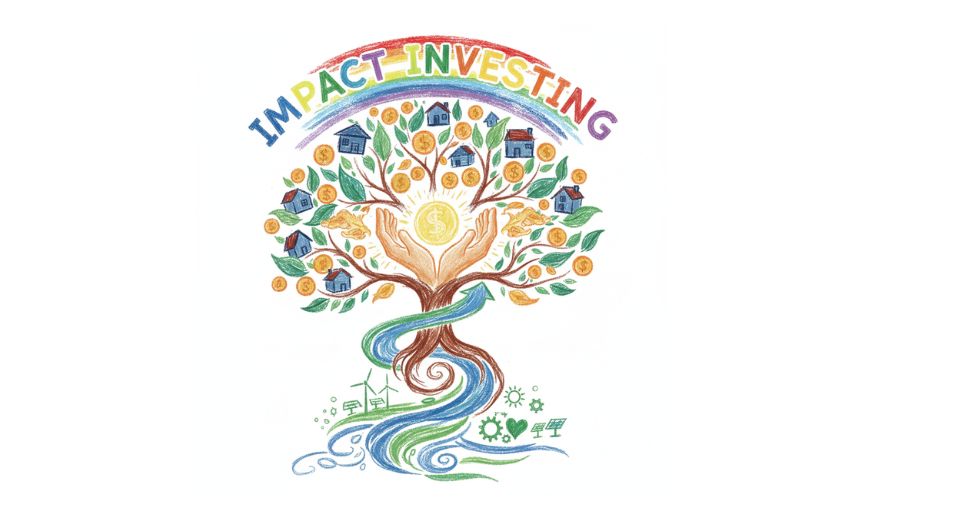
Sep 08, 2025

The global impact investing market, as captured in the form of an analysis by Metastat Insight, has reflected an astonishing expansion in scope and ambition, a sign of an invigorated transition in the strategy for capital allocation. Traditional investment models are being given way to ones harmonizing measurable social impacts alongside financial returns, since constituents today increasingly understand that societal health and economic progress can move forward together. This market growth is a mirror of broader social awareness and growing appreciation that investment decisions are having influence outside of ledgers. Capital flows are no longer solely motivated by conventional profit metrics but are guided by objectives with inclusion of environmental care, social responsibility, and governance.
This dual-objective approach has attracted actors from institutional investors to individual investors, all of whom want options with real-world effect without loss of financial prudence. The trajectory of the global impact investing space indicates a deliberate redirection of capital towards sectors addressing pressing global problems. Energy transition projects, sustainable farming, and inclusive banking solutions have gained plenty of attention as avenues through which investors can generate returns while contributing to system improvement.
Such initiatives have a tendency to involve public-private partnership as a mix of risk-sharing devices with shared liability. Investment in these industries has begun to redefine the traditional concept of reward and risk, as long-term value comes to be determined more and more by societal benefits as well as fiscal return. Financial products are evolving to support such objectives, with innovative frameworks that align incentives between recipients and capital providers and incorporate measurable social outcomes into contractual obligations.
Regionally, global market development for impact investing has been influenced by a variety of socio-economic forces and regulation. Responsible investment policy environments have positively encouraged active engagement, creating conditions in which capital enters ventures that would otherwise be shut out of capital. In a few of the emerging markets, targeted initiatives in boosting transparency and reporting standards have fostered investor confidence, allowing for more aggressive participation. In addition, demographic transformation and changes in consumer sentiment have heightened awareness of corporate responsibility, causing companies to implement practices that address values-driven investing.
These developments illustrate the degree to which market transformation is intertwined with social trends, policy settings, and conceptions of accountability shifting. The intersection of technological innovation and impact-oriented deployment of capital has also become more acute. Analyzing data, blockchain-based authentication, and web-based reporting platforms are complementing the capacity to monitor outcomes and demonstrate quantifiable impact. By combining these tools, investors can monitor progress with precision, so not only is the capital being spent efficiently but also its impact can be quantified objectively.
Beyond the financial world, such transparency supports engagement among stakeholders increasingly demanding evidence of tangible results, solidifying the legitimacy of investments entered into with a social objective. As allocation for capital continues to undergo changes, innovative structuring of alliances has found its place in the global impact investing landscape. Collaborative ventures are likely to involve multi-stakeholder collaboration, such as development finance organizations, philanthropic organizations, and private sector investors, all in a joint effort towards shared objectives that are broader than short-term financial gain.
These setups enable resource pooling, risk diversification, and design of solutions to local challenges, allowing scalable interventions with lasting effect. The model contradicts the traditional financial models by proving the reality that value creation is not unlimited and long-term outcomes often require interdisciplinary coordination.
Investor sentiment within the global impact investing market is more and more being driven by the reality that traditional financial instruments may not be adequate in addressing the variety of challenges confronted by societies worldwide. Environmental degradation, social injustices, and failed governance require approaches that balance the efficiency of capital with oversight mechanisms capable of providing quantifiable outcomes. By making social and environmental factors part of their investment process, participants are building flows of capital that serve transformative opportunities in industries. Utilization of structured impact frameworks assures that such investments are strategically focused rather than being ad hoc, enhancing credibility and facilitating the measurement of long-term outcomes.
In conclusion, the geography of the global market for impact investing, illuminating through Metastat Insight's insights, encapsulates an investment perspective that goes beyond conventional metrics. Its growth reflects a redefining of value balancing financial returns against measurable social value. The creation of new financial structures, advancements in technology, and multi-stakeholder partnerships paints the extent of strategic minds being applied for meaningful outcomes. Capital investment, therefore, is increasingly based on considerations that stretch along social, environmental, and governance dimensions, which is a broader definition of investment as a tool for enhancing the system. The trajectory of this market is to not just modify financial strategy but to actually redefine how societies consider responsible and accountable growth, so that the capital is deployed as a force for lasting, sustainable betterment.
Drop us an email at:
Call us on:
+1 214 613 5758
+91 73850 57479